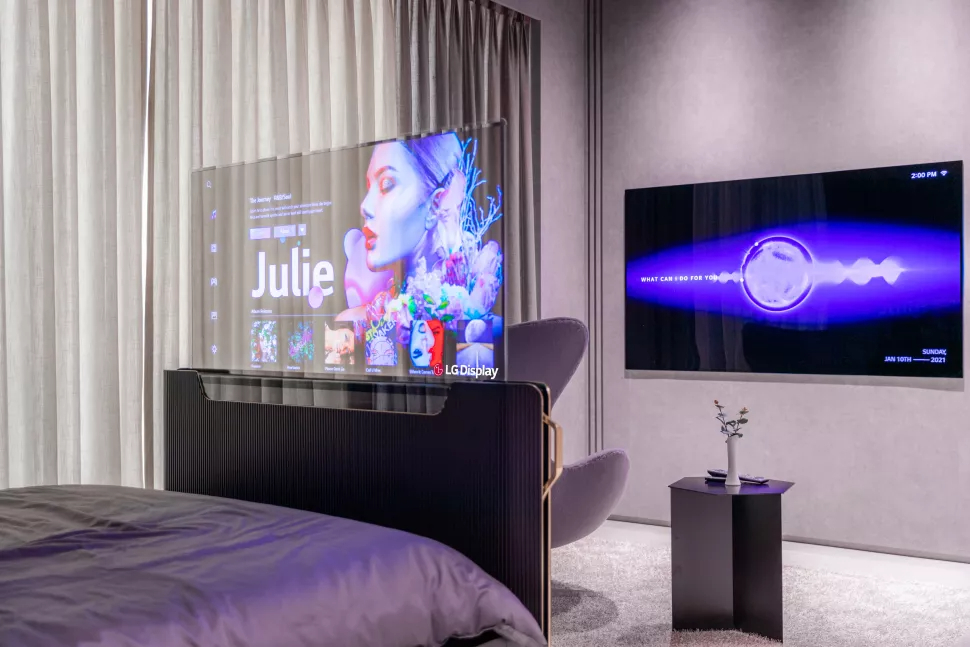
Thanks to advancements in display tech, manufacturers have been able to rethink and bend the form of televisions in unimaginable ways. For example, at CES 2020, LG showed off a roll-up TV that could retract into a soundbar. Now, at CES 2021, LG is back with yet another crazy idea: A transparent TV that can roll up from the foot of a bed.
LG says it has managed to achieve 40 percent transparency on a 55-inch OLED screen — a dramatic improvement over previous generations that were only about 10 percent see-through. Transparency is key in this concept because the Smart Bed TV, as it’s called, isn’t simply meant to stream TV shows and movies. It can also function as a smart home device and roll up from the bed to show you information — like the time, weather, or when your morning alarm is set to go off.
Despite the thin panel, LG has also squeezed in a set of built-in speakers, which it claims are embedded in the transparent frame itself.
The Smart Bed TV isn’t designed just for bedrooms, either. The company hopes to bring it to public places like malls and restaurants as well — if it ever gets released widely, that is. The whole module isn’t tethered to the bed, either, and can be relocated to other spaces in a home.
“Transparent OLED is a technology that maximizes the advantages of OLED and can be used in various places in our daily lives, from stores, shopping malls, and architectural interiors to autonomous vehicles, subway trains, and aircraft,” said Jong-sun Park, LG Display’s senior vice president and head of commercial business. “It will grow into a next-generation display that can change the existing display paradigm.”
LG’s new transparent TV isn’t the first of its class. Manufacturers like Samsung and Panasonic are actively developing the tech behind such displays to power the next generation of televisions. You can’t buy any of them, though, and even if one of these companies does release one sometime soon, the price tag will probably be enough to put you off. Case in point: LG’s rollable OLED TV went on sale last year in South Korea for a jaw-dropping $87,000.



